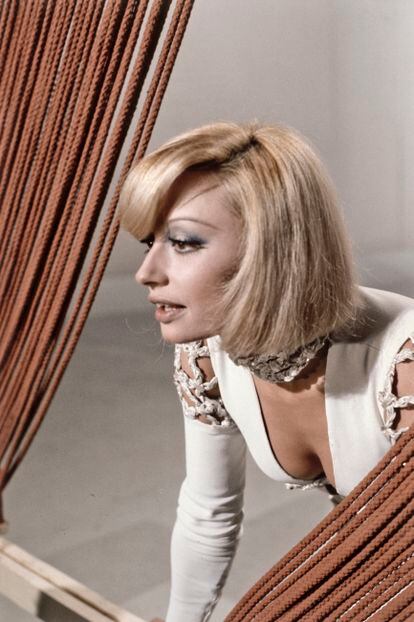At the beginning of the seventies of the last century, the images of Rafaella Carrà showing her navel on public television, in prime time, shook the then prudish Italy. That gesture that would go unnoticed today was a complete revolution and immediately became an unexpected symbol of unapologetic freedom. With performances like that, the Italian, who died last July at the age of 78, defied censorship, won the battle against those who called her too provocative and tried to discredit her - including the Vatican - and became an all-rounder icon for countless generations and in a television and musical phenomenon. His dances, songs and in general any of his television appearances are already part of the history of Italy and not only. Its expansive wave of liberation reached half the world.
The international production company Fremantle (which has done contests like
Got Talent
and series like
The New Pope
or
American Gods
) has just bought the rights to make an in-depth documentary about the life, incredible career and cultural impact of the artist, who gained fame with her many facets as an actress, dancer, singer, presenter and model. Sources from the production company confirm to EL PAÍS that the film will include, in addition to a large amount of already known archive material, unpublished images that have never seen the light of day and that will presumably be accompanied by interviews that will help put them in context. They also point out that the intention of the project is to capture the rebellious and revolutionary sentiment that Raffaella had. “Her unprecedented career as an Italian television superstar spanned seven decades, becoming a symbol of liberation and women's rights.Carrà did not stop challenging the limits of conservative morality and presenting herself as a free, independent and self-aware woman ”, they highlight in a statement.
The production company also defines the artist as "one of the most inspiring women in Italy." And they underline the great impact, involuntary as she herself would confess on some occasion, that Carrà had on the LGTBI community, which immediately saw in her and in her lyrics about sexual liberation a muse of freedom and the defense of the civil rights, in a period when joining this fight was not as easy as today. “His enormous popularity and commercial success, especially in Italy and Spain, made Raffaella Carrà challenge the
status quo
.
With her work, she helped women to have more confidence in their body and in their sexuality, encouraging everyone to feel free to express themselves.
She became a great advocate and icon of the LGTBI community and was recognized at World Pride Madrid 2017 ″, says Fremantle in the note.
The artist in the music program Canzonissima, in 1974. Rino Petrosino (Mondadori via Getty Images)
And they also reel off some highlights of the career of the Italian diva that will be remembered in the documentary. Like his participation in 1965 in the film
Colonel Von Ryan
, along with Frank Sinatra, Edward Mulhare and Trevor Howard; the navel scene during the opening song of
Canzonissima
, a popular program on the main public television channel, RAI that "caused great controversy and debate in Italian society." Or the well-known and sensual choreography of the
Tuca Tuca
, also at the beginning of the seventies, in which she and the dancer Enzo Paolo Turchi played suggestively, although rather innocently, and that the most conservative of the time interpreted it as excessively sexual and considered it too explicit.
At that stage, Carrà's popularity grew like wildfire in Spain and throughout Europe and Latin America, and his reputation as a top-notch musical artist was consolidated with albums such as
Forte Forte Forte
, which was released in 36 countries.
The documentary project, which is still in the making, is led by the Fremantle divisions of Italy and Spain and will cover the life and work of the star, born in Bologna in 1943, who rose from very humble origins to become in the "lady of Italian television."
So far the identity of his heirs has not been made public. The artist did not have children, but she took care of her nephews Matteo and Federica since the death of her brother, their father, in 2001, when she was 56 years old. "He took my father's place when he was absent, he has always given us the best affection and the best education," said his nephew a few months ago. Raffaella herself explained on several occasions that she tried to act as a father to her nephews, for whom she always showed adoration and who are now around forty years old. “They don't live in Rome, but for any problem they can count on me, I adore them. The parental aspect can be experienced in many ways. When I am not working, I am with them, they come to see me often ”, he once recounted. In everything related to his nephews, discretion has always dominated,as it happened with the private life of the queen of television and not many details are known about them.
The Italian press assumes that part of their heritage, among others, the rights to their work, could have been bequeathed to them and another part to Sergio Japino, director and choreographer, his second great love, who was his partner for many years and to whom she remained very close until the last day.

